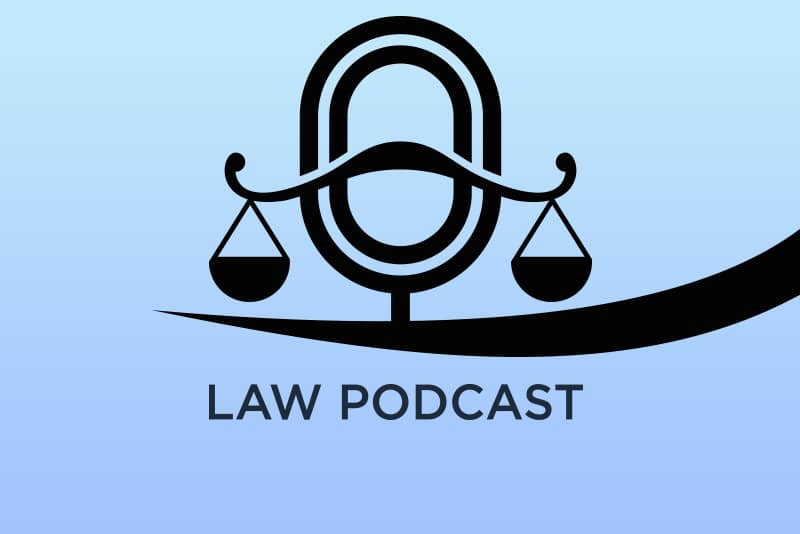
Most successful businesses have podcasts. Law firms too can benefit from posting videos and podcasts. Supported by podcast transcription services, speaking about specific topics can help lawyers communicate with their audience, reach new clients, increase brand awareness, and boost conversions.
Leveraging podcasts can help law firms:
- Improve relationships with existing clients
- Gain new clients
- Reach people who prefer to listen to audio than read text
- Conduct discussions and interviews
- Raise brand awareness
- Positioning themselves as a thought leader and authority on specific topics
- Demonstrate passion and expertise
- Create links to other content
- Improve SEO and generate leads
With podcasts, lawyers can deliver excellent content that answer clients’ pain points. One of the best things about podcasting is that it is not expensive or complex. Sessions can be conducted using a microphone and headset and recorded on a computer, or by dialing in on a telephone.
How Law Firms can Use Podcasts
Nearly 40 of the top 100 law firms now have podcasts, according to legal marketing company Good2bSocial’s 2020 Social Law Firm Index.
- Convert blogs to podcasts: Converting articles and blogs into podcasts can help law firms deliver content to their audience in a personalized way. Most legal consumers find it easier to listen to information rather than read it. Delivering written content in the form of podcasts will help you reuse it in a better way.
- Convert videos to podcasts: Another approach is to extract audio from video and use that as a podcast. Lawyers use video for various reasons: to generate brand awareness and support in business development, share their perspectives and analyze industry trends, share law tips and tricks, provide instruction and educate users. These messages can be re-recorded on audio software and turned into podcasts.
- Address clients’ pain points: For a law firm, effective marketing depends on addressing their clients’ issues. Podcasting is one of the best ways to do that. For example, if a person is seriously injured in an accident, they would want to know what the next steps should be – where to go for treatment, what to do to negotiate a settlement, etc.
- Interact with the audience: With podcasts, lawyers can demonstrate their expertise in various areas and encourage people to interact with them. For example, they can ask listeners to submit questions and answer them in subsequent episodes. If the law firm is targeting other lawyers, podcasts offer the chance to build relationships and drive referrals.
- Build authority: Podcasts help law firms reach new potential clients as well as other members of the legal community. This can help them build authority in key practice areas on hot topics such as immigration, human rights, employment law and so on.
The law is often complex and podcasting gives lawyers the opportunity to simplify matters for people and connect with them. Here are some tips to start off:
- Get quality equipment: Having high quality equipment can make a difference by making your podcast look professional. Invest in a good microphone and headset, and make sure your computer has a high-quality webcam or use one that plugs in through a USB. Choose a quiet room or location for recording. The goal should be to ensure excellent audio quality so that people can hear regardless of where they tune in from.
- Choose a relevant topic: The topic you choose should be based on your audience’s needs and your expertise. Do some research on your topic, find out what information is available, and aim to fill in the gaps. The best way to determine this is to ask your clients directly and listen to their feedback. Make sure the subject is timely and pertinent. Find a starting point and ensure that you will be able to provide enough information to create full podcast episodes.
- Develop a format: There are different types of podcast formats such as interview, monologue, conversational, etc. Legal podcasts should not be restricted to just one format, though the formats you choose should help you achieve your goal. For personal injury lawyers, an interview format may be ideal as it will help to present their view as well as that of experts.
- Develop a schedule: Scheduling podcast episodes consistently is crucial to hold your audience’s interest and build trust. Develop a content calendar and plan how you are going to present the topic. Whether you are scheduling guest interviews or discussing hot topics, develop a schedule that ensures timely episodes for listeners, such as weekly or monthly episodes. Sticking to a schedule will help you send out notifications and do outreach marketing in advance. You also can pre-schedule your episode to go live at a certain time so that your audience will know what to expect.
- Decide where the podcast will be hosted: There are many podcast sites that allow lawyers to set up a podcast. Popular services include Buzzsprout, Podcatchers, Anchor, WordPress and Libsyn. Once you have made your choice, upload the final file to the site and link the podcast to an appropriate page on your website. Your podcast audio host will distribute it to most channels like Stitcher or Google podcasts.
Though people watch video and listen to audio, most also like to read. An online transcription company can provide accurate and timely documentation of the content. Google indexes podcasts, and adding podcast transcripts to your website will maximize your marketing efforts.
Podcast transcription will also ensure that your content is available to people with hearing impairments. Plan your podcast content to include keywords that are ranking well. This will help your law firm gain a competitive edge.



